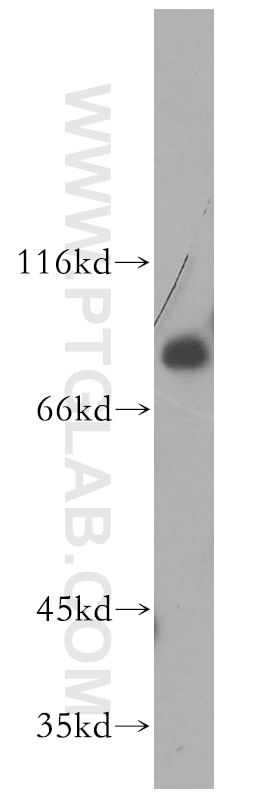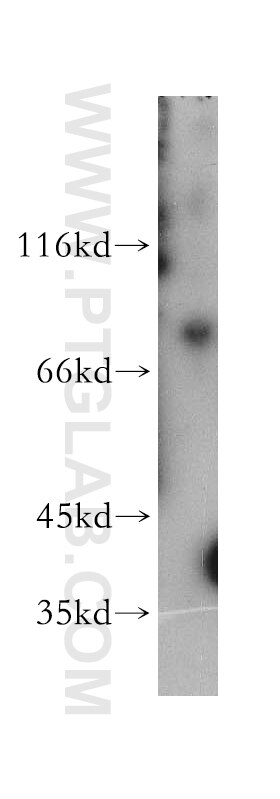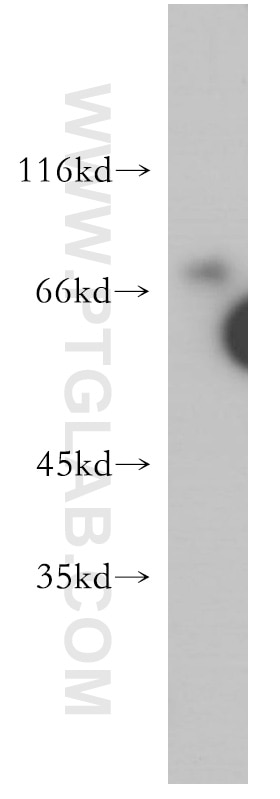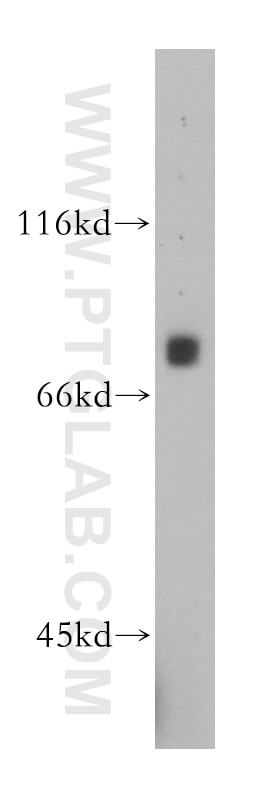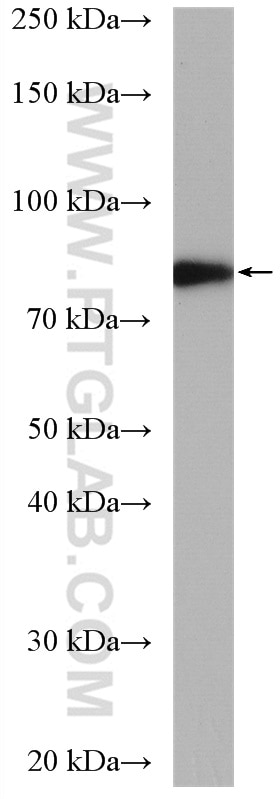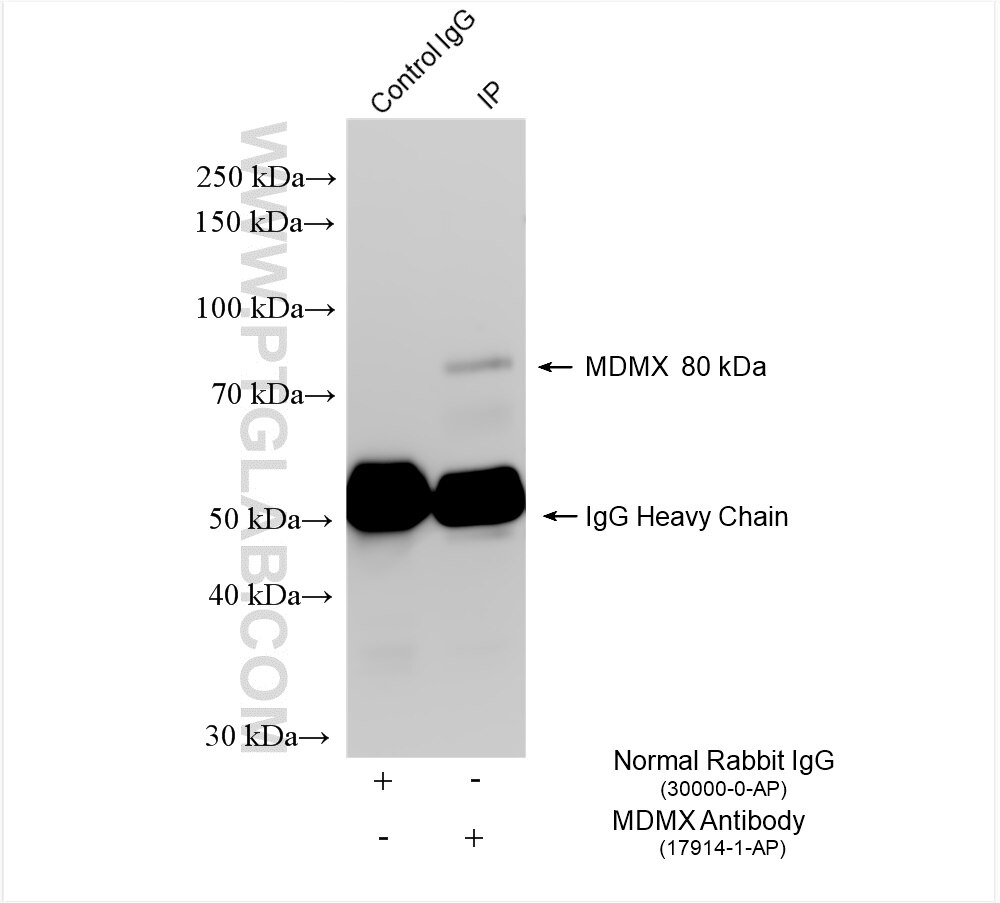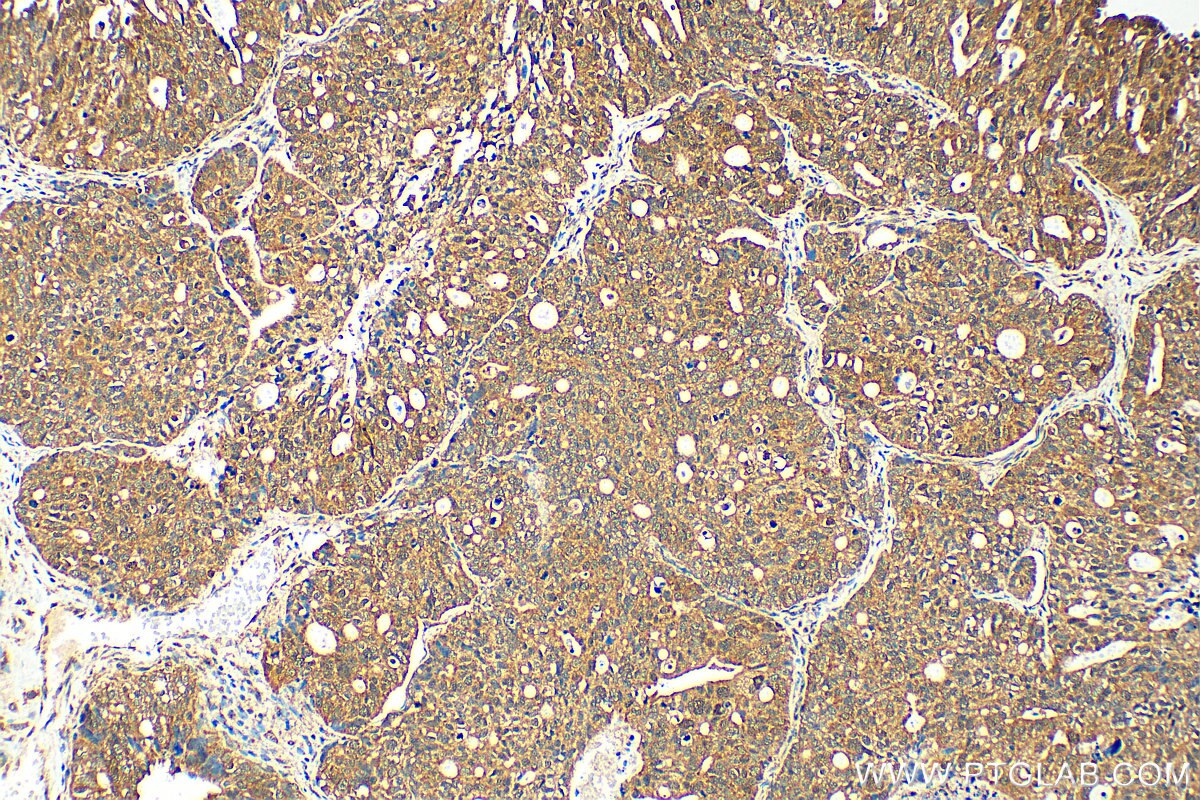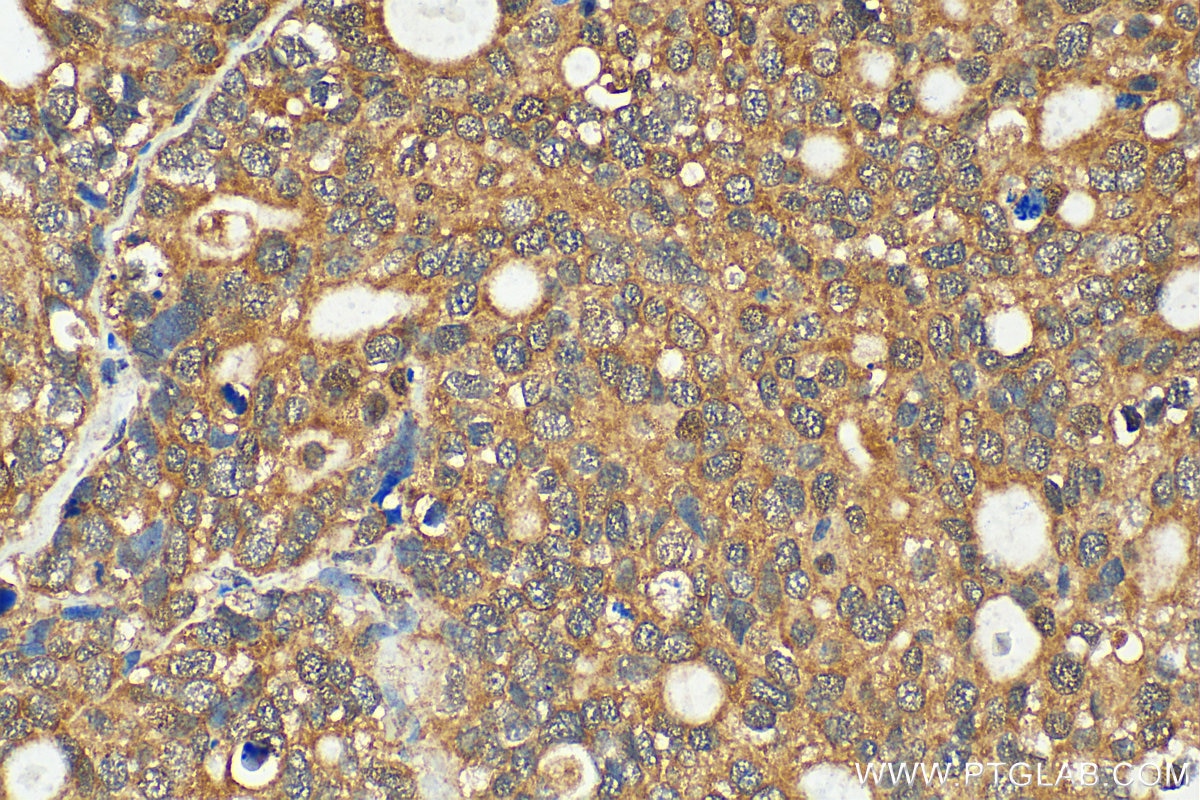Validation Data Gallery
Tested Applications
| Positive WB detected in | HeLa cells, Raji cells, HepG2 cells, Apoptosised HeLa cells, A375 cells |
| Positive IP detected in | HeLa cells |
| Positive IHC detected in | human ovary tumor tissue Note: suggested antigen retrieval with TE buffer pH 9.0; (*) Alternatively, antigen retrieval may be performed with citrate buffer pH 6.0 |
Recommended dilution
| Application | Dilution |
|---|---|
| Western Blot (WB) | WB : 1:500-1:2000 |
| Immunoprecipitation (IP) | IP : 0.5-4.0 ug for 1.0-3.0 mg of total protein lysate |
| Immunohistochemistry (IHC) | IHC : 1:50-1:500 |
| It is recommended that this reagent should be titrated in each testing system to obtain optimal results. | |
| Sample-dependent, Check data in validation data gallery. | |
Published Applications
| KD/KO | See 4 publications below |
| WB | See 34 publications below |
| IHC | See 1 publications below |
| IF | See 1 publications below |
| IP | See 1 publications below |
Product Information
17914-1-AP targets MDMX/MDM4 in WB, IHC, IF, IP, ELISA applications and shows reactivity with human, mouse, rat samples.
| Tested Reactivity | human, mouse, rat |
| Cited Reactivity | human, mouse, rat |
| Host / Isotype | Rabbit / IgG |
| Class | Polyclonal |
| Type | Antibody |
| Immunogen |
CatNo: Ag12319 Product name: Recombinant human MDM4 protein Source: e coli.-derived, PGEX-4T Tag: GST Domain: 1-332 aa of BC067299 Sequence: MTSFSTSAQCSTSDSACRISPGQINQVRPKLPLLKILHAAGAQGEMFTVKEVMHYLGQYIMVKQLYDQQEQHMVYCGGDLLGELLGRQSFSVKDPSPLYDMLRKNLVTLATATTDAAQTLALAQDHSMDIPSQDQLKQSAEESSTSRKRTTEDDIPTLPTSEHKCIHSREDEDLIENLAQDETSRLDLGFEEWDVAGLPWWFLGNLRSNYTPRSNGSTDLQTNQDVGTAIVSDTTDDLWFLNESVSEQLGVGIKVEAADTEQTSEEVGKVSDKKVIEVGKNDDLEDSKSLSDDTDVEVTSEDEWQCTECKKFNSPSKRYCFRCWALRKDWYS 相同性解析による交差性が予測される生物種 |
| Full Name | Mdm4 p53 binding protein homolog (mouse) |
| Calculated molecular weight | 490 aa, 55 kDa |
| Observed molecular weight | 80 kDa |
| GenBank accession number | BC067299 |
| Gene Symbol | MDMX/MDM4 |
| Gene ID (NCBI) | 4194 |
| RRID | AB_2143683 |
| Conjugate | Unconjugated |
| Form | |
| Form | Liquid |
| Purification Method | Antigen affinity purification |
| UNIPROT ID | O15151 |
| Storage Buffer | PBS with 0.02% sodium azide and 50% glycerol{{ptg:BufferTemp}}7.3 |
| Storage Conditions | Store at -20°C. Stable for one year after shipment. Aliquoting is unnecessary for -20oC storage. |
Background Information
MDM4 is also named as MDMX. It inhibits the activity of the tumor suppressor p53 by primarily cooperating with the p53 feedback regulator MDM2. MDM4 resides mostly in the cytoplasm, but can be recruited to the nucleus by MDM2.(PMID:16511572). The predicted mass of the protein is 54 kD, while the observed mass is 80 kD, a difference which stated is probably due to phosphorylation or other posttranslational modification(PMID:9226370). It can be ubiquitinated and degraded by MDM2(PMID:16163388). It has 5 isoforms produced by alternative splicing.
Protocols
| Product Specific Protocols | |
|---|---|
| IHC protocol for MDMX/MDM4 antibody 17914-1-AP | Download protocol |
| IP protocol for MDMX/MDM4 antibody 17914-1-AP | Download protocol |
| WB protocol for MDMX/MDM4 antibody 17914-1-AP | Download protocol |
| Standard Protocols | |
|---|---|
| Click here to view our Standard Protocols |
Publications
| Species | Application | Title |
|---|---|---|
Brain Parkin interacting substrate phosphorylation by c-Abl drives dopaminergic neurodegeneration. | ||
Cancer Res FL118 Induces p53-Dependent Senescence in Colorectal Cancer Cells by Promoting Degradation of MdmX. | ||
Redox Biol Exogenous spermine attenuates rat diabetic cardiomyopathy via suppressing ROS-p53 mediated downregulation of calcium-sensitive receptor. | ||
Cell Death Discov LASS2 enhances p53 protein stability and nuclear import to suppress liver cancer progression through interaction with MDM2/MDMX | ||
J Med Chem Structure-Based Discovery of MDM2/4 Dual Inhibitors that Exert Antitumor Activities against MDM4-Overexpressing Cancer Cells. | ||
PLoS Genet MDM2 E3 ligase activity is essential for p53 regulation and cell cycle integrity.
|

